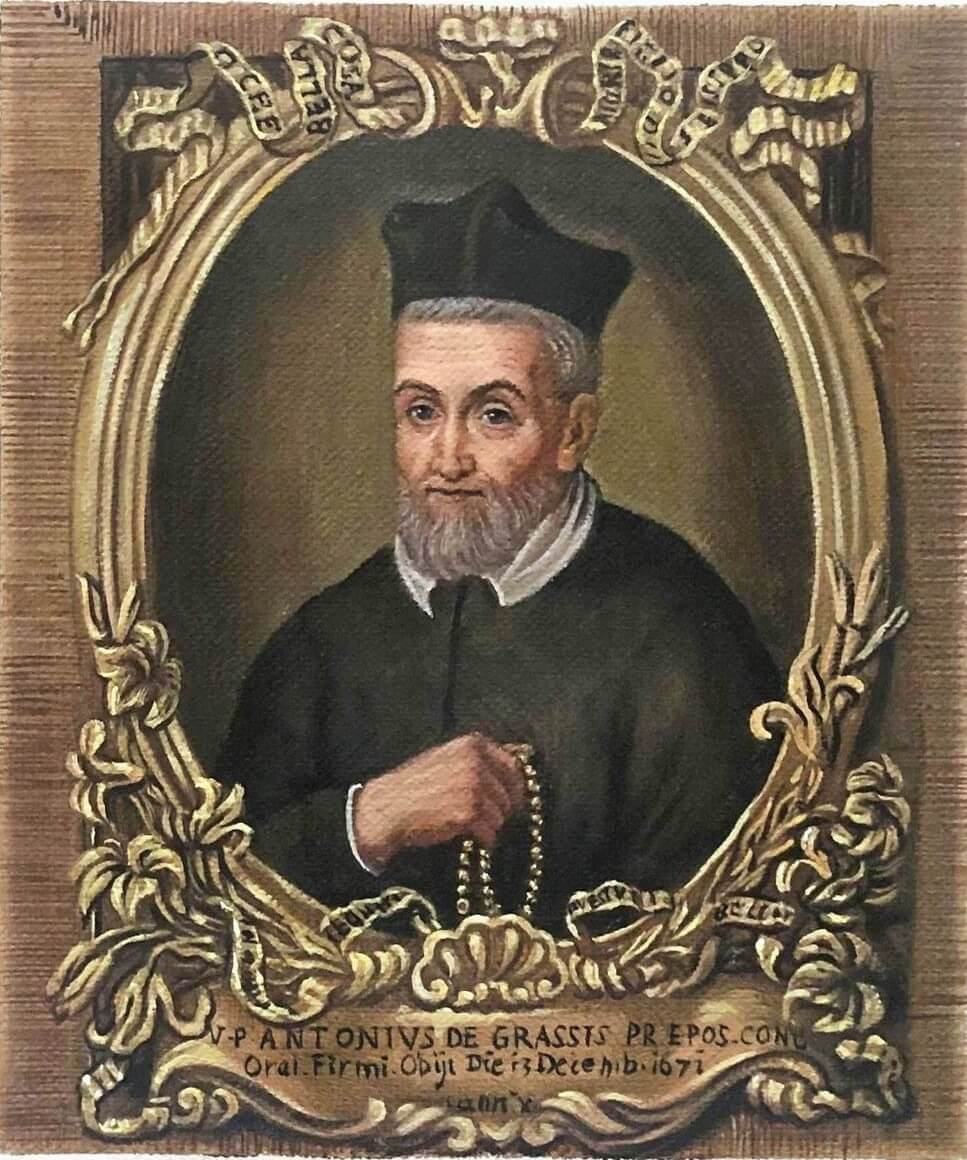Ad litteram
This Friday is the feast of Blessed Anthony Grassi of the Oratory in Fermo. There will be Solemn Benediction in his honour at 6:30pm.

When we examine the outward signs of Blessed Anthony’s sanctity, we see that he prayed for six hours every day and was miraculously saved from a lightning bolt while at the Holy House of Loreto. In fact, he is such a shining example of holiness that any attempt to imitate him may seem daunting. Unlike Saint Philip, he did not even have a period of discernment at the beginning of his life, but leaves us liable to think that unless we have joined religious life at the age of sixteen (following a childhood of exemplary sanctity) we have no hope of relating to him. However, we must remember that Divine Providence, which he trusted in so deeply, leads us all along different paths and, on each of these, Blessed Anthony’s example lends us encouragement.
Perhaps the most obvious is his appeal to the young and devout who worry whether it is possible to sustain their present piety. To these Blessed Anthony shows a life of eighty years, constantly guided by the Divine Will and never faltering in progress towards virtue. As a child, he attended daily Mass and listened to sermons so intently that he would repeat them to his playmates in a makeshift chapel he constructed in his home. This fervour never ceased and, after joining the Congregation of the Oratory in Fermo, he made the firm resolution to be a perfect imitator of Saint Philip and to follow the Oratorian rule ad litteram (to the letter). He died sixty four years later, having achieved this, with even his countenance visibly changed to mirror that of Our Holy Founder.
At this time of Advent and approaching the New Year, many of us who are not in a state of youthful perfection know how they ought to improve and may be making resolutions to do so. For his part, Blessed Anthony realised that his path to holiness lay in the Oratorian vocation and decided to follow this perfectly. Not only does he show us that it is indeed possible to follow a rule of life without faltering, but the fullness of every virtue which he achieved through this should encourage each of us to proceed diligently on the path we know will lead us to holiness.
And when we fail, we can look at his treatment of penitents. He never said much in the confessional except enough to reveal hidden sins, encourage contrition, and excite a new fervour for the service of God. Though he himself seems to have never done anything seriously wrong, Blessed Anthony understood human weakness and believed in new beginnings, never tiring of calling sinners to repentance and putting them back on the path to holiness.
Finally, as one biography puts it: “He reminds all the faithful to seek before all else God and to remember that on earth they live to know God, love Him, and faithfully serve Him that they may reign with him in heaven. Towards this every man should turn all his labour and concern in order to gain eternal happiness and glory in heaven.” Perhaps this is the simplest rule which each of us should follow, like Blessed Anthony, ad litteram.

